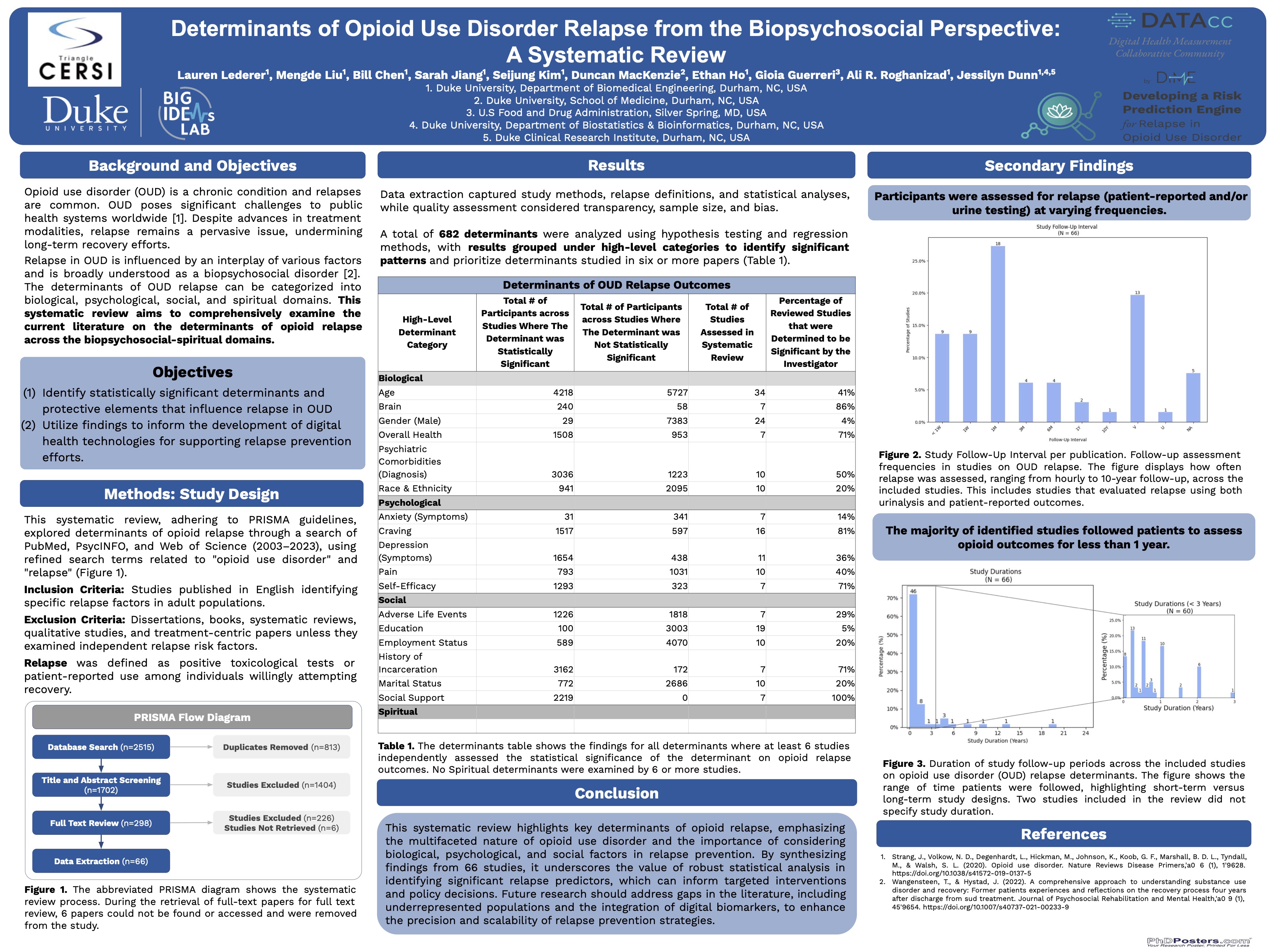Problem & Motivation
Opioid Use Disorder (OUD) represents a critical public health challenge, with relapse being a particularly persistent concern despite advances in treatment modalities. While various treatment options exist, understanding and preventing relapse remains a complex challenge that undermines long-term recovery efforts. The determinants of OUD relapse span multiple domains - biological, psychological, social, and spiritual - creating a complex web of factors that influence recovery outcomes.
This systematic review aimed to comprehensively examine the current literature on OUD relapse determinants across these biopsychosocial-spiritual domains. By identifying statistically significant determinants and protective elements that influence relapse, we sought to inform the development of digital health technologies for supporting relapse prevention efforts.
Methods
Following PRISMA guidelines, we conducted a systematic review exploring OUD relapse determinants through comprehensive searches of PubMed, PsycINFO, and Web of Science (2003-2023). Our analysis included studies published in English that identified specific relapse factors in adult populations. We excluded dissertations, books, systematic reviews, qualitative studies, and treatment-centric papers unless they examined independent relapse factors.
Relapse was defined as positive toxicological tests or patient-reported use among individuals willingly attempting recovery. We analyzed determinants using hypothesis testing and regression methods, with results grouped under high-level categories to identify significant patterns and prioritize determinants studied in six or more papers.
Results & Impact
Our comprehensive analysis identified 862 determinants across biological, psychological, social, and spiritual domains, revealing the complex nature of OUD relapse. Within the biological category, several key predictors emerged: age was significant in 41% of studies, brain-related measures in 86%, and psychiatric comorbidities in 50%. The psychological domain highlighted the importance of anxiety symptoms (14% of studies) and depression (36%), while social determinants included education (5%) and employment status (20%). These findings underscore the multifaceted nature of OUD and the need for comprehensive intervention strategies.
A critical observation from our analysis was the considerable variation in study methodologies. While follow-up periods ranged from hourly assessments to 10-year longitudinal studies, the majority of research tracked patients for less than one year. This methodological diversity highlights both the complexity of studying relapse patterns and the need for more standardized approaches in future research. The prevalence of shorter-term studies also suggests a gap in our understanding of long-term recovery trajectories.
These findings have significant implications for both clinical practice and digital health innovation. By synthesizing results from 86 studies, we've created a comprehensive framework that can inform the development of more effective relapse prevention strategies. For digital health technologies in particular, our results suggest opportunities for developing tools that monitor and address multiple risk factors simultaneously. This could include real-time tracking of biological indicators, psychological state monitoring, and social support assessment, leading to more personalized and effective intervention strategies.
